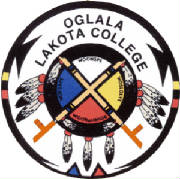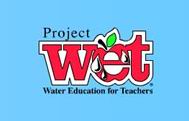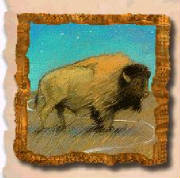|
| Oglala Lakota College (OLC) |

|
The Lakota have always held their land base to be sacred. The land
is something that must be protected and managed wisely and effectively. Consequently, OLC has developed a strong program in
the area of environmental scienc. Two emphasis areas have been developed: earth sciences and conservation biology. In the
earth sciences, students learn about water management, solid waste disposal, and a myriad of other issues needed to protect
andimprove the quality of life on the reservation. In the area of conservation biology, wise management of wildlife and habitats
is critical to the future of our reservation. The Lakota perspective is vital to the environmental science program. All students
are required to take specific courses that incorporate traditional Lakota concepts about land, plants, and animals.
| Leopold Education Project |

|
The Leopold Education Project
(LEP) is an innovative, interdisciplinary, critical thinking, conservation and environmental education curriculum based on
the classic writings of the renowned conservationist, Aldo Leopold. The Leopold Education Project teaches the public about
humanity's ties to the natural environment in the effort to conserve and protect the earth's natural resources.
| Project Wild |

|
Project WILD is
one of the most widely-used conservation and environmental education programs among educators of students in kindergarten
through high school. It is based on the premise that young people and educators have a vital interest in learning about our
natural world. A national network of State Wildlife Agency Sponsors ensures that Project WILD is available nationwide --training
educators in the many facets of the program. Emphasizing wildlife because of its intrinsic value, Project WILD addresses the
need for human beings to develop as responsible citizens of our planet.
| Project Wet |

|
Project WET (Water
Education for Teachers) is a nonprofit water education program and publisher for educators and young people ages 5-18. The
program facilitates and promotes awareness, appreciation, knowledge, and stewardship of water resources through the dissemination
of classroom-ready teaching aids and the establishment of internationally sponsored Project WET programs.
| Project Learning Tree |

|
Project Learning TreeŽ (PLT) is the environmental
education program of the American Forest Foundation. PLT uses the forest as a "window on the world" to increase student's
understanding of our complex environment and to help students learn the skills they need to make sound choices about the environment.
Developed in 1976, PLT has a network of more than 300,000 trained educators using six curricula covering the total environment.
The American Forest Foundation, a nonprofit organization, works for healthy forests, quality environmental education, and
to help people make informed decisions about our communities and our world.
| Project Underground |

|
Project Underground is a source
of interdisciplinary instructional activities, and its staff conducts workshops and in-service training programs. These materials
and workshops are designed for classroom teachers, cavern, park, museum, and nature center staff, or any youth-oriented group
leaders.
| The Council for Environmental Education |

|
The Council for Environmental
Education is a nationally recognized leader in environmental education; providing programs and services that promote responsible
stewardship of our natural resources.
| The American Indian Science & Engineering Society |

|
The American Indian Science & Engineering
Society (AISES) is a national, non-profit organization that nurtures building of community by bridging science and technology
with traditional Native values. Through its educational programs, AISES provides opportunities for American Indians and Alaska
Natives to pursue studies in science, engineering, and technology arenas. These trained professionals then become technologically
informed leaders within the Indian community. AISES' ultimate goal is to be a catalyst for the advancement of American Indians
and Native Alaskans as they seek to become self-reliant and self-determined members of society.
| ANLSAMP |

|
The goal of the All Nations Louis
Stokes Alliance for Minority Participation is to increase the number of American Indians graduating with a Bachelors' degree
in Science, Technology, Engineering, and Mathematics.
| National Tribal Environmental Council |

|
The National Tribal Environmental
Council (NTEC) is a comprehensive resource for American Indian & Alaska Native communities, state & federal agencies,
and private and non-profit organizations interested in protecting tribal environments. NTEC's mission is to enhance each Tribe's ability to protect, preserve and promote the wise management
of air, land and water for the benefit of present and future generations.
| American Indian Environmental Office (AIEO) |

|
The American Indian Environmental Office
(AIEO) coordinates the Agency-wide effort to strengthen public health and environmental protection in Indian Country, with
a special emphasis on building Tribal capacity to administer their own environmental programs. AIEO oversees development and
implementation of the Agency's Indian Policy and strives to ensure that all EPA Headquarters and Regional Offices implement
their parts of the Agency's Indian Program in a manner consistent with Administration policy to work with Tribes on a government-to-government
basis and EPA's trust responsibility to protect Tribal health and environments. AIEO's responsibilities also include:
providing multi-media program development
grants to Tribes;
negotiating Tribal/EPA Environmental
Agreements that identify Tribal priorities for building environmental programs and also for direct, EPA program implementation
assistance;
developing tools to assist Tribal environmental
managers in their decisions on environmental priorities;
developing training curricula for EPA
staff on how to work effectively with Tribes; and
working to improve communication between
the Agency and its Tribal stakeholders in a number of ways, including assistance to Agency Offices as they consult more closely
with Tribes on actions that affect Tribes and their environments, and support for regular meetings of the Agency's Tribal
Operations Committee.
American Indian Environmental Office,
USEPA
Mail Code: 4104M
1200 Pennsylvania Ave., N.W.
Washington,
DC 20460
Tel:
202/564-0303
FAX:
202/564-0298
Actual Address for Visiting & Delivery:
1201
Constitution Ave. NW
EPA
East Building, Room 3334
Washington,
DC 20004
|

